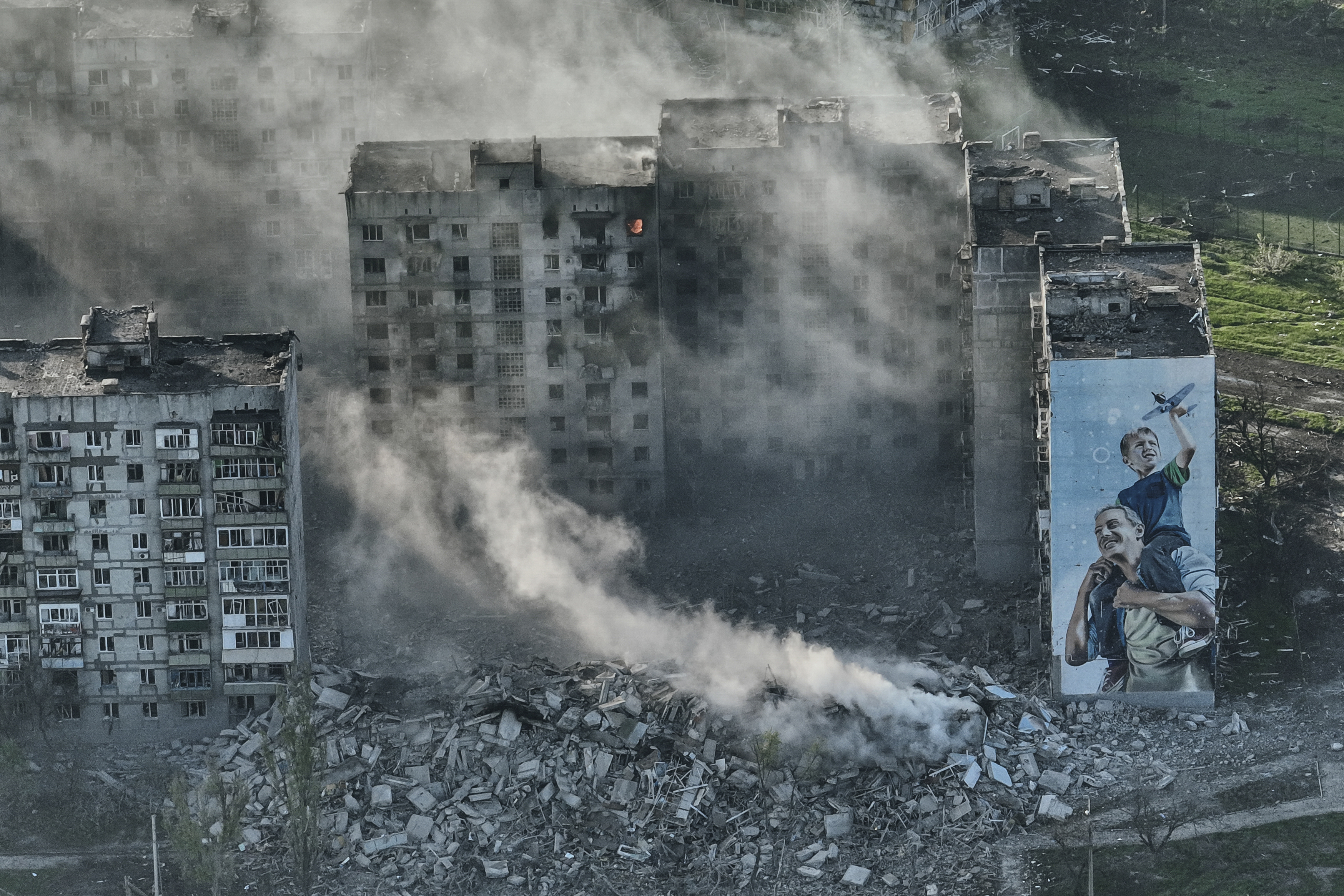
Russia claims it has fully captured Bakhmut in eastern Ukraine, but Kyiv says it still controls part of the city.
Bakhmut, which once had a population of about 70,000 people, has seen eight months of fierce fighting in the bloodiest battle since Russia invaded Ukraine in February 2022.
Russian President Vladimir Putin congratulated his troops and the Wagner Group private army for “liberating” the city on Saturday, but Ukraine’s President Volodymyr Zelenskyy said that although Russian troops are in Bakhmut, the city is “not occupied”.
Colonel General Oleksandr Syrsky, commander of the Ground Forces of Ukraine, said on Sunday that Ukrainian troops are approaching the capture of the city in a tactical encirclement. Deputy Defence Minister Hanna Malyar said Ukrainian troops are advancing “in the suburbs on the flanks” and have “semi-encircled the city”.
But why has Bakhmut, a previously sleepy, nondescript city nestled away in the salt-mining region of eastern Ukraine, become so significant in the Russia-Ukraine war? Here is what you need to know:
Limited strategic value
In order for Russia to advance further into Ukraine and achieve Putin’s aim of “liberating the Donbas”, Russia needs to capture Bakhmut.
However, the huge amount of emphasis that both sides have placed on the city goes far beyond any strategic value. If either side were to completely capture Bakhmut, they would then face a series of defensive lines positioned around it.
The city’s importance instead lies in the symbolic weight it has garnered over months of bitter, entrenched fighting.
For Ukraine, it has become an example of dogged, determined resistance. The city has seen some of the most intense fighting since Russia’s invasion. Images of blood-soaked trench warfare are shared on the messaging app Telegram, and “Bakhmut holds!” is a popular slogan on social media.
Russia, on the other hand, needs a victory. After its initial advances in the first months of its full-scale invasion, a successful Ukrainian counteroffensive reclaimed swathes of territory in a series of humiliating defeats for Russian forces.
As the Russian military lost face, the Wagner Group, a mercenary outfit hardened by years of deployments in Syria and various African nations, took on the fight for Bakhmut late last year.
Since then, the Russian offensive in Bakhmut has become synonymous with the group, and its abrasive chief Yevgeny Prigozhin has called out senior Russian military leaders and publicly berated them for not providing his forces with enough ammunition.
A victory for Russia in Bakhmut could also be seen a victory for Prigozhin and potentially raise his standing with the Kremlin.

What would the fall of Bakhmut mean for Ukraine?
Speaking on Sunday at the Group of Seven (G7) summit in Hiroshima, Japan, Ukrainian President Volodymyr Zelenskyy said the city has been “completely destroyed”, suggesting that a potential defeat would be cast by Kyiv as a pyrrhic victory for Russia.
The loss of the city could inflict a blow to morale for Ukraine after so many months of bitter fighting. It is not known exactly how many troops on both sides have died in the conflict, but Moscow and Kyiv have both claimed to have killed hundreds in a single day.
It would come at a time when Ukraine is expected to launch a highly anticipated counteroffensive, which could raise concerns amongst Ukraine’s allies.
In March, Zelenskyy said if Bakhmut fell it could allow Russia to garner international support for a deal that might force Ukraine to make unacceptable compromises.
What would the capture of Bakhmut mean for Russia?
The fall of the city could be a huge morale boost for Russia, which is in need of its first major victory in more than 10 months.
Since the latter half of 2022, reports from the front lines of the war have tended to reflect Ukrainian advances in some areas and a grinding stalemate in others. Russia has launched several waves of drone and missile strikes at Ukrainian cities but claimed no significant territorial gains.
Putin congratulated both the Wagner private army and regular Russian forces in a statement, indicating that the leader is eager to close what has been a grinding, resource-draining chapter in Russia’s attempts to capture the Donbas region.
Strategically, a victory in Bakhmut could open up a path further west, possibly to Kramatorsk, a city with roughly 150,000 inhabitants before the war. However, Ukraine has heavily fortified the areas around the city of Bakhmut.







